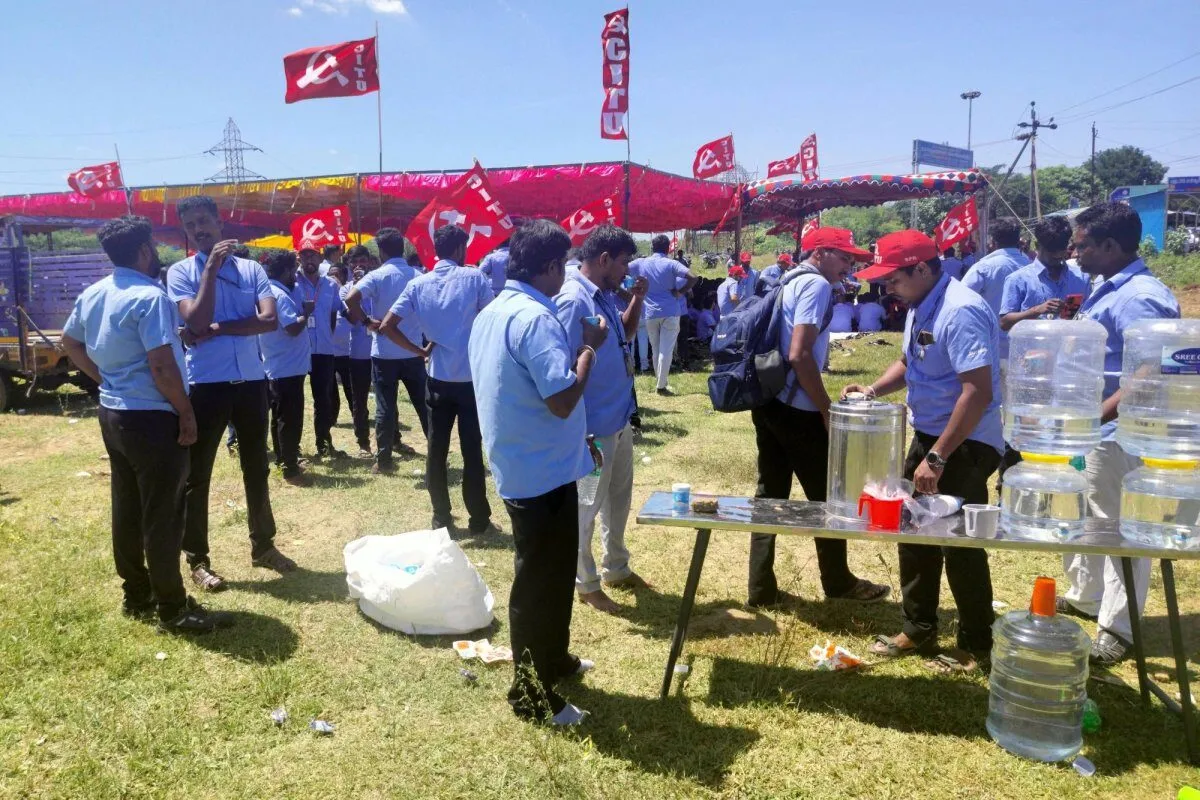In a significant development, Indian authorities have detained 104 striking workers from a Samsung Electronics factory in southern India. This action comes as the workers were planning an unauthorized protest this week. The factory, located near Chennai in the Tamil Nadu state, has been embroiled in a labor dispute over low wages.
The detentions mark a sharp escalation in the strike at the Samsung appliance plant, which is critical to the company’s operations in India. The strike, which lasted for a week, has disrupted production at a facility responsible for about one-third of Samsung’s annual revenue in India, equating to approximately $12 billion.
Impact on Modi’s Investment Strategy
This labor unrest casts a shadow over Indian Prime Minister Narendra Modi’s efforts to attract foreign investment under the “Make in India” initiative. Modi’s strategy aims to triple the country’s electronics output to $500 billion over the next six years. The situation highlights the challenges faced by India in leveraging its low-cost labor force to attract global manufacturers, as companies seek to diversify their supply chains away from China.
Details of the Detention
On September 16, workers planned to start a protest march but were detained by the police due to restrictions in the area, which includes schools, colleges, and hospitals. The senior police officer of Kancheepuram district noted, “This area would have been completely paralyzed, and the protest would have jeopardized public security.”
The detained workers were held in wedding halls as the authorities did not have the capacity to accommodate all of them at police stations, according to the officer.
Strike and Labor Demands
The strike began last week with workers protesting outside a makeshift tent near the factory, demanding higher wages, recognition of a union backed by the Centre of Indian Trade Unions (CITU), and improved working conditions. Samsung has resisted recognizing any union supported by national labor groups like CITU, and negotiations with the workers and state officials have yet to reach a resolution.

Challenges for Samsung in India
The strike exacerbates the challenges Samsung faces in the Indian market, a key growth area. The South Korean conglomerate is considering reducing its overseas workforce by up to 30% in several departments, including in India. Additionally, India’s antitrust body has accused Samsung and other smartphone companies of colluding with e-commerce giants to launch exclusive devices, allegedly breaching competition laws.
Ongoing Negotiations
On September 13, Samsung announced that it had begun discussions with workers at the Chennai plant “to resolve issues as quickly as possible.” Video footage from Reuters partners showed dozens of Samsung workers in company uniforms being transported by bus to a hall.
The factory currently employs around 1,800 workers, with more than 1,000 participating in the strike. It produces appliances such as refrigerators, TVs, and washing machines. Another Samsung facility in Uttar Pradesh, which manufactures smartphones, has not experienced similar unrest.
Political and Labor Reactions
A. Jenitan, a leader from CITU, informed Reuters that the police also detained one of the protest leaders from the Samsung plant near Chennai. This situation underscores the growing tensions between labor movements and corporate interests in India’s burgeoning manufacturing sector.